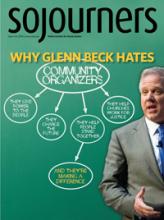September 2010
These lessons range over a rich field of faith, imagining with us and for us what a difference faith makes. The sequence of psalms pushes the emotional extremities of faith, in turn concerning instruction (Psalm 1); confession (Psalm 51); praise (Psalm 113); and assurance (Psalm 91). The height and depth of life are all brought before God.
The epistle readings are offers in "practical theology," insisting that trust in the gospel leads to a visible, daily difference in how life is lived. The gospel readings from Luke -- like the four Hebrew scripture lessons -- exhibit the ways in which the rule of God (in the life of Jesus) invites, warns, disrupts, and challenges.
When we pay attention, we are sure to be surprised by the presentation of God, who exposes us with our "possessions," who welcomes us back, and who plunges us into new thoughts and new actions about our resources. It is clear that gospel faith puts before us challenges and possibilities that would otherwise elude us completely. These challenges and possibilities do not admit of easy resolution. They do, nevertheless, give us more than enough to think and decide about.
Walter Brueggemann, a Sojourners contributing editor, is professor emeritus at Columbia Theological Seminary in Decatur, Georgia.
[ September 5 ]
Faith, Not Fate
Jeremiah 18:1-11; Psalm 1; Philemon 1-21; Luke 14:25-33
Faith teaches us that we are not fated by the stars, not by hidden powers, not by economic forces. Rather, the life God gives us is a zone of freedom that we may exercise to choose our futures. The urgency of faith is to think seriously and long-term about choosing futures that God makes available.
Read the Full Article
